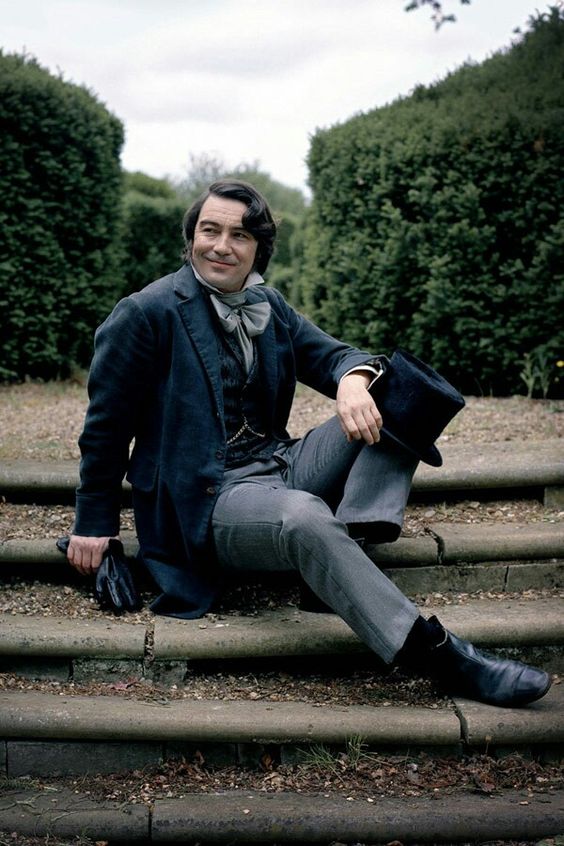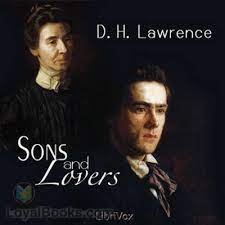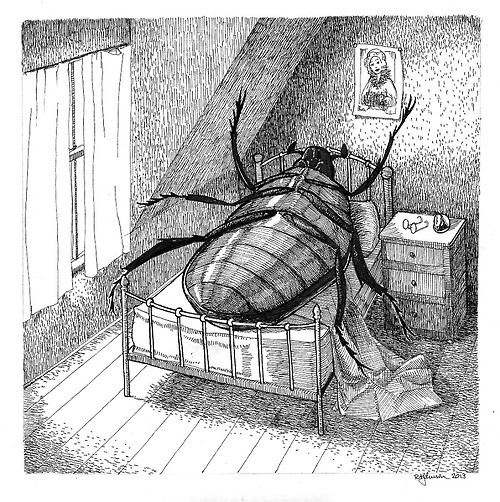Wednesday
One of literature’s gifts to humanity is how it allows us to vicariously live through situations that we encounter later in life. Think of it as survival training. Therefore, when I was with my dying mother this past month, scenes from novels and lyrics from poems flooded in, providing me with tools to negotiate the emotional turbulence.
While it is probably over 50 years since I read D. H. Lawrence’s Sons and Lovers, one scene above all stands out to me. It’s not surprising that I would remember the death of Paul’s mother since it is the culminating scene in the book. Still, I remember being shaken to the core when I read it then, and, in going back now, I was struck by how close it matched up with our own ordeal. The only difference is that Julia and I did not give my mother a killing dose of morphine when she was in her final days and hours. Under instructions from hospice, however, we did increase the dosage, administering it at those moments (fairly few) when she became agitated.
What I recall about the novel is the agony of Paul and his sister Annie as they await the ending. Gertrude Morel has always been a fighter, and that prolongs the dying.
Early on, the episode captures how mother and son have reversed roles, something which happened with us as well:
“Shall I give you some milk?” he asked.
“A little,” she replied plaintively.
And he would put some water with it, so that it should not nourish her. Yet he loved her more than his own life.
Julia, like Annie, slept next to my mother every night. And my mother, like Gertrude, did “not weep, or even complain much”:
She had morphia every night, and her heart got fitful. Annie slept beside her. Paul would go in in the early morning, when his sister got up. His mother was wasted and almost ashen in the morning with the morphia. Darker and darker grew her eyes, all pupil, with the torture. In the mornings the weariness and ache were too much to bear. Yet she could not—would not—weep, or even complain much.
Also like Gertrude, my mother would ask for the time and the day when she awoke. It was a way of situating herself in a reality that was becoming increasingly murky:
“You slept a bit later this morning, little one,” he would say to her.
“Did I?” she answered, with fretful weariness.
“Yes; it’s nearly eight o’clock.”
He stood looking out of the window. The whole country was bleak and pallid under the snow. Then he felt her pulse. There was a strong stroke and a weak one, like a sound and its echo. That was supposed to betoken the end. She let him feel her wrist, knowing what he wanted.
Here’s a contrast, however. My mother seemed far more willing to die, and while she didn’t talk about moving on, I did. To be sure, I didn’t mention heaven didn’t talk about heaven because neither she nor I find that a compelling metaphor, but I did say that I thought the spirit persists when the body dies—and that, because of that, her spirit would meet up with the spirits of my father and her parents and and her grandson (and my eldest son) Justin. Paul doesn’t ever have deep talks with his mother, which might be part of why she can’t let go. Instead, he looks to the doctor for help:
Sometimes they looked in each other’s eyes. Then they almost seemed to make an agreement. It was almost as if he were agreeing to die also. But she did not consent to die; she would not. Her body was wasted to a fragment of ash. Her eyes were dark and full of torture.
“Can’t you give her something to put an end to it?” he asked the doctor at last.
But the doctor shook his head.
“She can’t last many days now, Mr. Morel,” he said.
My mother had administered to her own mother in her final weeks and believed that my grandmother’s doctor intervened medically, although she doesn’t know for certain. It would simply have entailed increasing the dosage, which is what Paul and his sister ultimately do. First, however, there’s much more suffering for everyone involved:
Paul went indoors.
“I can’t bear it much longer; we shall all go mad,” said Annie.
The two sat down to breakfast.
“Go and sit with her while we have breakfast, Minnie,” said Annie. But the girl was frightened.
And:
Paul went through the country, through the woods, over the snow. He saw the marks of rabbits and birds in the white snow. He wandered miles and miles. A smoky red sunset came on slowly, painfully, lingering. He thought she would die that day. There was a donkey that came up to him over the snow by the wood’s edge, and put its head against him, and walked with him alongside. He put his arms round the donkey’s neck, and stroked his cheeks against his ears.
His mother, silent, was still alive, with her hard mouth gripped grimly, her eyes of dark torture only living.
It was nearing Christmas; there was more snow. Annie and he felt as if they could go on no more. Still her dark eyes were alive. Morel, silent and frightened, obliterated himself. Sometimes he would go into the sick-room and look at her. Then he backed out, bewildered.
She kept her hold on life still.
Eventually Paul and Annie feel compelled to take the fatal last step:
He looked round. Her eyes, like dark bubbles in her face, were looking at him.
“No, my dear,” he said gently. Another fibre seemed to snap in his heart.
That evening he got all the morphia pills there were, and took them downstairs. Carefully he crushed them to powder.
“What are you doing?” said Annie.
“I s’ll put ’em in her night milk.”
Then they both laughed together like two conspiring children. On top of all their horror flicked this little sanity.
His mother, trusting, takes the night milk, even while complaining about the bitterness. Paul lies to her, which is something I tried never to do with my mother, although I understand why he does so:
“It’s a new sleeping draught the doctor gave me for you,” he said. “He thought it would leave you in such a state in the morning.”
“And I hope it won’t,” she said, like a child.
She drank some more of the milk.
“But it is horrid!” she said.
He saw her frail fingers over the cup, her lips making a little move.
“I know—I tasted it,” he said. “But I’ll give you some clean milk afterwards.”
“I think so,” she said, and she went on with the draught. She was obedient to him like a child. He wondered if she knew. He saw her poor wasted throat moving as she drank with difficulty. Then he ran downstairs for more milk. There were no grains in the bottom of the cup.
I particularly relate to Paul’s tenderness towards his mother:
They turned the clothes back. Paul saw his mother like a girl curled up in her flannel nightdress. Quickly they made one half of the bed, moved her, made the other, straightened her nightgown over her small feet, and covered her up.
“There,” said Paul, stroking her softly. “There!—now you’ll sleep.”
“Yes,” she said. “I didn’t think you could do the bed so nicely,” she added, almost gaily. Then she curled up, with her cheek on her hand, her head snugged between her shoulders. Paul put the long thin plait of grey hair over her shoulder and kissed her.
“You’ll sleep, my love,” he said.
“Yes,” she answered trustfully. “Good-night.”
I also relate to how Paul and his sister—Julia and I in our case—felt alone in a dark immensity:
They lingered before the bedroom fire, feeling the night big and black and snowy outside, their two selves alone in the world. At last he went into the next room and went to bed.
He slept almost immediately, but kept waking every now and again. Then he went sound asleep. He started awake at Annie’s whispered, “Paul, Paul!” He saw his sister in her white nightdress, with her long plait of hair down her back, standing in the darkness.
“Yes?” he whispered, sitting up.
“Come and look at her.”
He slipped out of bed. A bud of gas was burning in the sick chamber. His mother lay with her cheek on her hand, curled up as she had gone to sleep. But her mouth had fallen open, and she breathed with great, hoarse breaths, like snoring, and there were long intervals between.
“She’s going!” he whispered.
“Yes,” said Annie.
But Mrs. Morel doesn’t go instantly, just as my mother held out longer than we thought she would.
“Isn’t it awful!” whispered Annie.
He nodded. They sat down again helplessly. Again came the great, snoring breath. Again they hung suspended. Again it was given back, long and harsh. The sound, so irregular, at such wide intervals, sounded through the house. Morel, in his room, slept on. Paul and Annie sat crouched, huddled, motionless. The great snoring sound began again—there was a painful pause while the breath was held—back came the rasping breath. Minute after minute passed. Paul looked at her again, bending low over her.
“She may last like this,” he said.
They were both silent. He looked out of the window, and could faintly discern the snow on the garden.
“You go to my bed,” he said to Annie. “I’ll sit up.”
“No,” she said, “I’ll stop with you.”
“I’d rather you didn’t,” he said.
At last Annie crept out of the room, and he was alone. He hugged himself in his brown blanket, crouched in front of his mother, watching. She looked dreadful, with the bottom jaw fallen back. He watched. Sometimes he thought the great breath would never begin again. He could not bear it—the waiting. Then suddenly, startling him, came the great harsh sound. He mended the fire again, noiselessly. She must not be disturbed. The minutes went by. The night was going, breath by breath. Each time the sound came he felt it wring him, till at last he could not feel so much.
The erratic breathing continues for hours, as it did in our case:
It went on just the same. She lay with her cheek in her hand, her mouth fallen open, and the great, ghastly snores came and went.At ten o’clock nurse came. She looked strange and woebegone.
“Nurse,” cried Paul, “she’ll last like this for days?”
She can’t, Mr. Morel,” said nurse. “She can’t.”
There was a silence.
“Isn’t it dreadful!” wailed the nurse. “Who would have thought she could stand it? Go down now, Mr. Morel, go down.”
And then, at last, relief comes, followed by tenderness:
At last, at about eleven o’clock, he went downstairs and sat in the neighbor’s house. Annie was downstairs also. Nurse and Arthur were upstairs. Paul sat with his head in his hand. Suddenly Annie came flying across the yard crying, half mad:
“Paul—Paul—she’s gone!”
In a second he was back in his own house and upstairs. She lay curled up and still, with her face on her hand, and nurse was wiping her mouth. They all stood back. He kneeled down, and put his face to hers and his arms round her:
“My love—my love—oh, my love!” he whispered again and again. “My love—oh, my love!”
The hospice nurse commented on how she was struck when I did something similar.
But as one must return to the world, in the novel the characters turn to practical concerns:
When he took his face up from his warm, dead mother he went straight downstairs and began blacking his boots.
There was a good deal to do, letters to write, and so on. The doctor came and glanced at her, and sighed.
“Ay—poor thing!” he said, then turned away. “Well, call at the surgery about six for the certificate.”
When I was in college, D. H. Lawrence was my favorite author–so much so that I even included a poem of his (the sexually explicit “Tortoise Shout”) in our wedding ceremony. I’ve moved on from him since but I see some of the same reticence in the Morel household that I experienced growing up in the Bates household.
What is different is that I have become much more open to talking about, and communicating, my emotions. Lawrence helped me with that when I was in college—that’s one reason why I appreciated him so much—and that led me to other authors who trained me in becoming more communicative. I particularly remember receiving useful instruction from novelist Margaret Drabble.
A lifetime spent reading literature, in other words, helped prepare me for dealing with this death.










